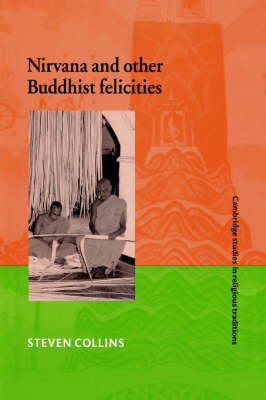Cambridge Studies in Religious Traditions
1 total work
This book presents an answer to the question: what is nirvana? Part I distinguishes between systematic and narrative thought in the Pali texts of Theravada Buddhism in South and Southeast Asia, arguing that nirvana produces closure in both, and setting nirvana in the wider category of Buddhist Felicities. Part II explores other Buddhist utopias (both eu-topias, 'good places', and ou-topias, 'no-places'), and relates Buddhist utopianism to studies of European and American utopian writing. The book ends with a close reading of the Vessantara Jataka, which highlights the conflict between the ascetic quest for closure and ultimate felicity, and the ongoing demands of ordinary life and society. Steven Collins discusses these issues in relation to textuality, world history and ideology in premodern civilizations, aiming to contribute to an alternate vision of Buddhist history, which can hold both the inside and the outside of texts together.
